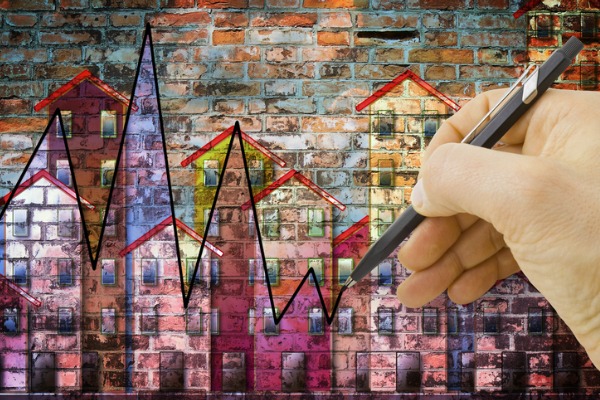Pre-Covid financial squeeze has turned into a stranglehold today
9th March 2022 11:48
by Myron Jobson from interactive investor
interactive investor comments on ONS household wealth statistics.

The ONS has today published analysis providing new insight into the financial vulnerability of households before the coronavirus (Covid-19) pandemic.
Key points:
- More than a third (35%) of households in Great Britain spent more than their income before the coronavirus pandemic (April 2018 to March 2020).
- Of households that were spending more than their income before coronavirus, nearly half (46%) had a financial buffer that would cover their overspend for less than a year.
- More than half (57%) of working-age people who were living alone spent more than their income, the highest percentage among household types. These households were able to fund the shortfall for three to four months on average.
- Single parent households were less likely to be overspending (43%), but those that were could only sustain it for one month on average.
Commenting, Myron Jobson, Senior Personal Finance Analyst, interactive investor, says: “The pandemic has profoundly changed attitudes on many facets of life, from our relationships to mental health and also our finances. Before the pandemic, one in 14 households were in poverty for income, spending and financial wealth. This statistic lays bare the financial struggles experienced by vast swathes of the UK population, which, in many cases, have been exacerbated by the cost-of-living crisis today.
“However, a large percentage of people were fortunate enough to have a financial buffer to cover their overspend pre-Covid. Many of these individuals, as well as those who became accidental savers during the pandemic, have had the rug pulled out from under their feet amid the cost-of-living crisis.
“The financial squeeze that many experienced pre-Covid, has turned into a stranglehold today amid the once-in-a-generation style rise in the cost of living. With inflation ballooning and energy prices doing the same, the harsh reality is we have to spend more to maintain our pre-Covid spending habits. The soaring price of oil has not only inflated the amount we pay for fuel in the nation’s forecourts, but also how much we spend on everyday essentials, which are heavily reliant on fuel to end up on supermarket shelves.
“Things are likely going to get worse before they get better, so it is important to take steps today to bolster financial resilience now to give you some peace of mind in the coming months. This may translate to doing an emergency budget, cutting down on non-essential spending and squirrelling away more money into a rainy-day fund if you can afford to do so. Those worried about being unable to meet payment obligations should contact their providers for support.”
Pensioners
On retired people’s spending and wealth, the ONS found that retirees who spent more than their income “had a much greater buffer to fall back on. A retired person living alone could sustain an overspend for an average of three years, compared with nearly seven years for a retired couple.”
The report also found that retired households were the least likely to be in ‘financial wealth poverty’, where a household doesn’t have enough in liquid assets to stay above the poverty line for three months, if they lost their income.
Becky O’Connor, Head of Pensions and Savings, interactive investor, said: “Saving and investing for the future is so important. “Retired households are among the most financially resilient mainly because they are more likely to have a savings buffer from a lifetime of work to cushion any over-spending. But they also tend to spend less – because generally, as you get older, there is less to spend on.
“While families struggling to make ends meet in the here and now have a lot to juggle financially, making sure that you have something set aside for emergencies now and in the future, when you stop work, is vital.”
These articles are provided for information purposes only. Occasionally, an opinion about whether to buy or sell a specific investment may be provided by third parties. The content is not intended to be a personal recommendation to buy or sell any financial instrument or product, or to adopt any investment strategy as it is not provided based on an assessment of your investing knowledge and experience, your financial situation or your investment objectives. The value of your investments, and the income derived from them, may go down as well as up. You may not get back all the money that you invest. The investments referred to in this article may not be suitable for all investors, and if in doubt, an investor should seek advice from a qualified investment adviser.
Full performance can be found on the company or index summary page on the interactive investor website. Simply click on the company's or index name highlighted in the article.